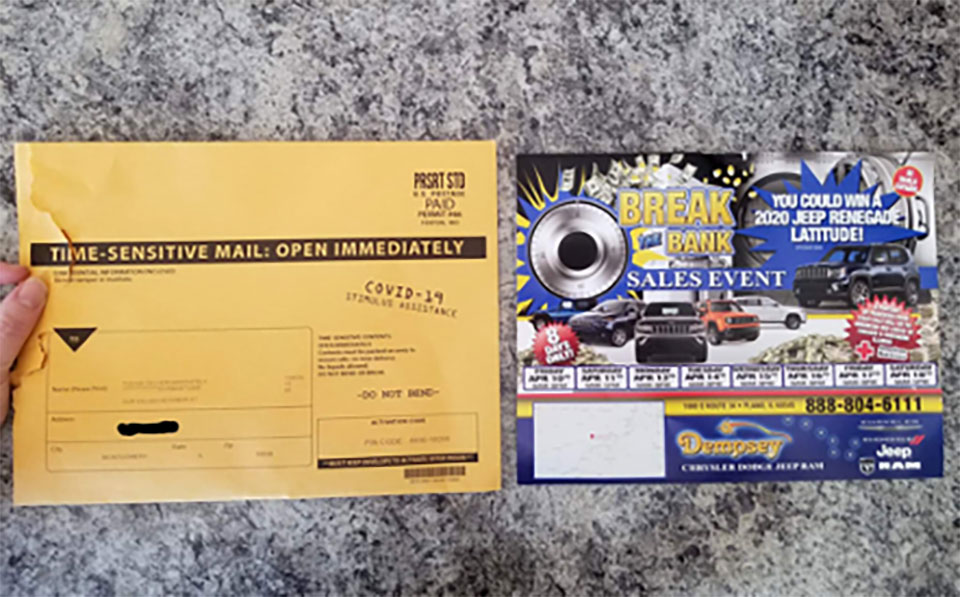In the Christian tradition, seven deadly sins topple people off their ladder to heaven: lust, gluttony, greed, sloth, wrath, envy, and pride. These bad behaviors have made it into the popular lexicon in one form or another, whether you’re a religious person or not.
Marketers are no saints when it comes to the seven deadly sins. Seriously. Don Draper is just one gorgeously liquored up televised example of how marketing firms are paid to create lust for gluttonous companies greedy for bigger sales. Like a crown of thorns, it’s a glorious circle that creates wants and then fulfills it with stuff that people need—or think they need. Can you hear the cash register?
Now that we’ve gotten your attention with some delightfully controversial chat, let’s talk about the pandemic, which some might say is their chosen deity’s way of taking us all down a rung or two.
Unfortunately, regardless of its origin, COVID-19 is now much more than a momentary blip; it’s an Era. The Era of the Coronavirus is changing how we live, work, and act.
It’s also changing how we sell and promote our companies to our clients. Marketers must adapt to these new circumstances. But some people are doing this in a way that not only evokes the seven deadly sins but smears them all over their efforts to capitalize on the terrible situation we’ve found ourselves in.
Marketers, please stop making these mistakes.
Seven Deadly Coronavirus Marketing Sins That Will Send You Straight to Ad-Agency Hell
#1: Slothfully Not Changing Anything at All
Sloths are adorably lazy, aren’t they? But it’s not cute when marketers fail to change their tactics to accommodate the Era of the Coronavirus. While good portions of your marketing plans won’t need changing, sticking to the same flight plan will probably run your brand right into the ground.
#2: Where’s Your Pride? Stopping All Marketing
Cutting your budget back may make sense right now but stopping entirely won’t help. Pride is one deadly sin that you probably need right now, so buck up. If you’re belt-tightening, try thinking more strategically. Stopping entirely means you’ll have trouble starting again when the Coronavirus Era turns into the Recovery Decade (we hope).
#3: Greedily Exploiting Peoples’ Fears
OK, maybe sloth wasn’t the biggest sin you could make in the post-COVID age. Greed is bigger. Coming across like you’re exploiting the virus for a quick buck not only lacks subtlety, it smells bad. It may not get you any more sales and it could—rightly—generate negative publicity. Remember that guy that hoarded hand sanitizer? Businesses exist to make money — and marketers do too — but the moment you start seeming exploitative is the moment you’re hurting your business or your client.
Seriously. Who do you think you are, a drug company?
Look at this jerk. LOOK AT IT.
#4: Gluttonously Wallowing in the Maudlin
Sure, we know the phrase, “If it bleeds it leads.” We get it. It’s a tough time. We don’t need to hear it in every email or social post. If we hear the phrase, “In these challenging times,” one more time from you, we are going to take your Clio away. Stop.
Seriously. Who do you think you are, the nightly news?
#5: Not Recognizing That Consumers Lust for the Greater Good
This is a great time to build some positive buzz and give back with some charitable donations. Raise some money for food banks, donate some PPE to health workers, put your money where your mouth is. Everyone can say “we’re in it together,” but if you show it, customers will be more likely to believe you.
#6: Envy the Consumer First
At the end of “SE7EN,” super-creepy (not an act, it turns out) Keven Spacey, the serial killer, shares just how much he envies Brad Pitt’s normal life. There’s a lesson for advertisers, and it has nothing to do with decapitation: Think about what people want. What are they struggling with, what are they facing? How can your product or service genuinely help them? Focus on that aspect, without explicitly saying “The coronavirus is scary, buy us.”

Here’s a good example from an ecommerce reseller that sells car covers. People don’t drive as much during a stay-at-home lockdown. Rather than run PPC ads like “Not driving due to COVID? Use a car cover!”, they invested in writing a blog (and accompanying infographic) about caring for a car parked for an extended period of time, with a very soft sell at the very end. This was content valuable to a reader, whether they converted into a customer or no.
#7: Wrathfully Withholding the Freebies
Are you angry? SaaS companies skipping the free trial, or ecommerce shops skipping BOGO or free shipping at a time when people need a boost, are just wrong, and possibly cranky. Extending free trials builds goodwill. Don’t be mad at your customers.
Like all marketing and sales, SaaS marketing and ecommerce are about engagement. Give them what they need, and they will remain paying customers long after the Era of Coronavirus is over.



